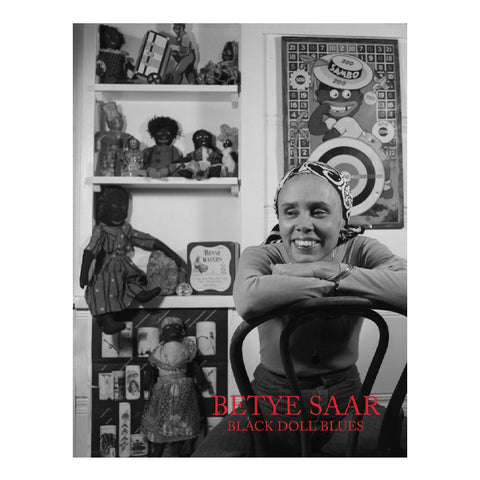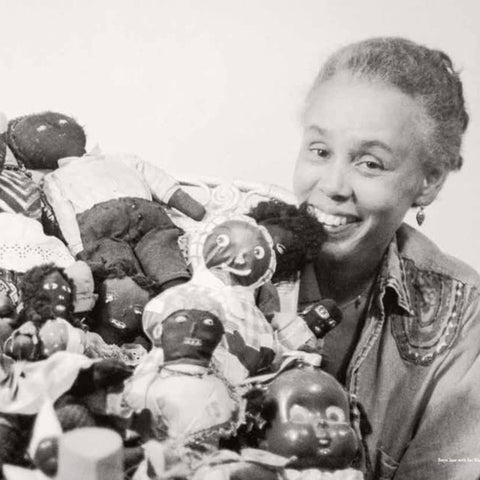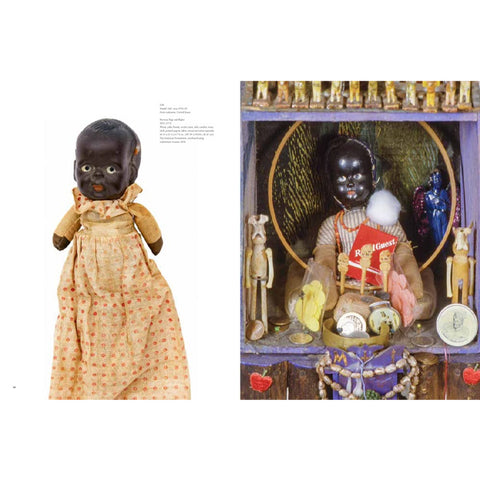This volume features new watercolor works on paper and assemblages by Betye Saar (born 1926) that incorporate the artist’s personal collection of Black dolls. These watercolors showcase the artist’s experimentation with vivid color and layered techniques, and her new interest in flat shapes. While Saar has previously used painting in her mixed-media collages, this is the first publication to focus on her watercolor works on paper.
“Watercolor is something that children use, so I decided, maybe I’ll paint something about children, maybe I’ll paint the dolls,” Saar says. Referencing the underrepresented history of Black dolls through Saar’s artistic lens, this catalog distills several intersecting themes, imagery and objects in Saar’s oeuvre, highlighting her prominent usage and reinvention of Black imagery. It contains 90 color images, including early assemblage works that feature Black dolls, such as Gris-Gris Box (1972) and Mti (1973), plus early sketchbooks and a curated selection of Saar’s Black doll collection. It also includes original essays by Rachel Federman, Associate Curator of Modern and Contemporary Drawings at the Morgan Library & Museum, and Katherine Jentleson, Merrie and Dan Boone Curator of Folk and Self-Taught Art at the High Museum of Art, and an interview with the artist by her granddaughter, Maddy Inez Leeser.
- text by Rachel Federman and Katherine Jentleson
- interview by Maddy Inez Leeser
- foreword by Julie Roberts
Black Dolls (February 25 -- June 5, 2022) explores handmade cloth dolls made primarily by African American women between 1850 and 1940 through the lens of race, gender, and history. Examining the formation of racial stereotypes and confronting the persistence of racism in American history. It features more than 100 cloth dolls, alongside dozens of historical photographs of white and Black children posed with their playthings and caregivers. A coda explores 20th-century commercial dolls marketed to a broader audience of Black families seeking to instill pride in their children. Through these humble yet potent objects, Black Dolls reveals difficult truths about American history and invites visitors to engage in the urgent national conversation around the legacy of slavery and race.




